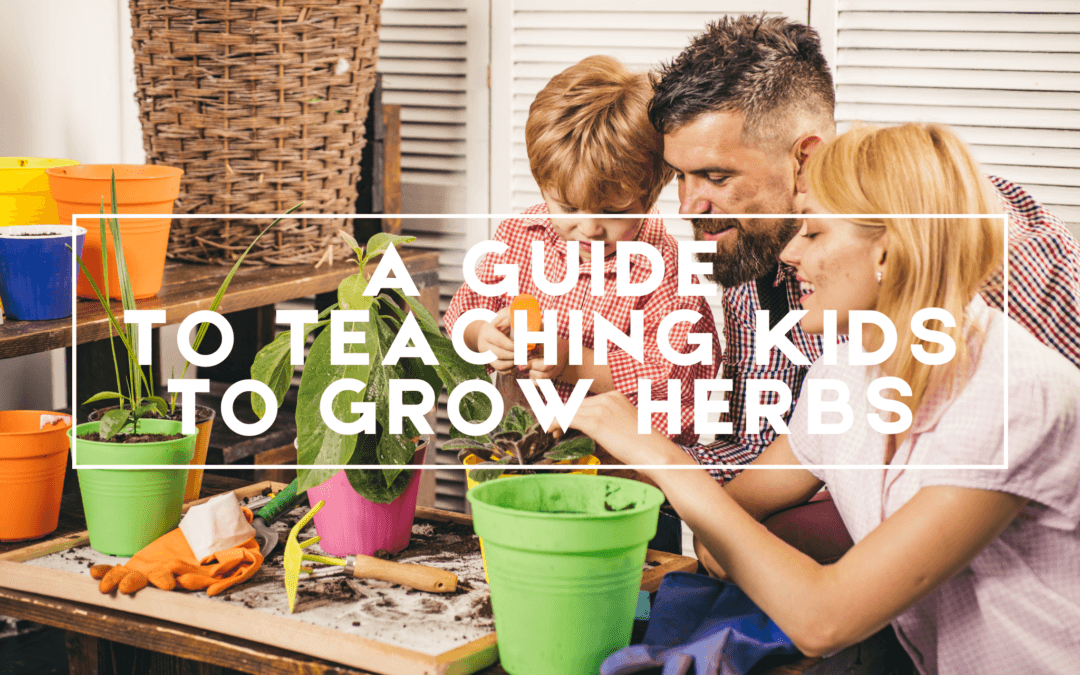==================
Affiliate Statement and a Caveat
First off, a little caveat: within my articles you will find affiliate links, meaning if you buy them, I get a small commission. Your cost is not affected. In addition, I am an Amazon Associate and I earn from qualifying purchases on Amazon.
And yes, if I say that I recommend a product here, it means I truly believe it is a good product. I refuse to recommend any product that I have not researched and believe to be a good value.
Even better, I provide you with a very clear picture of the product, it’s use, and the probable value.
Earning your trust is important to me. I run this website myself and the commissions and donations help support the site.
Sound reasonable and fair enough? Let’s continue to the article.
==================
Teaching kids to grow herbs is a worthwhile and fun experience. Your children will learn the importance of being responsible and might also realize that gardening will be a lifelong hobby for them. If you do not have enough space to plant herbs outside, don’t worry because herbs can easily grow inside making it easy to have your family kitchen herb garden.
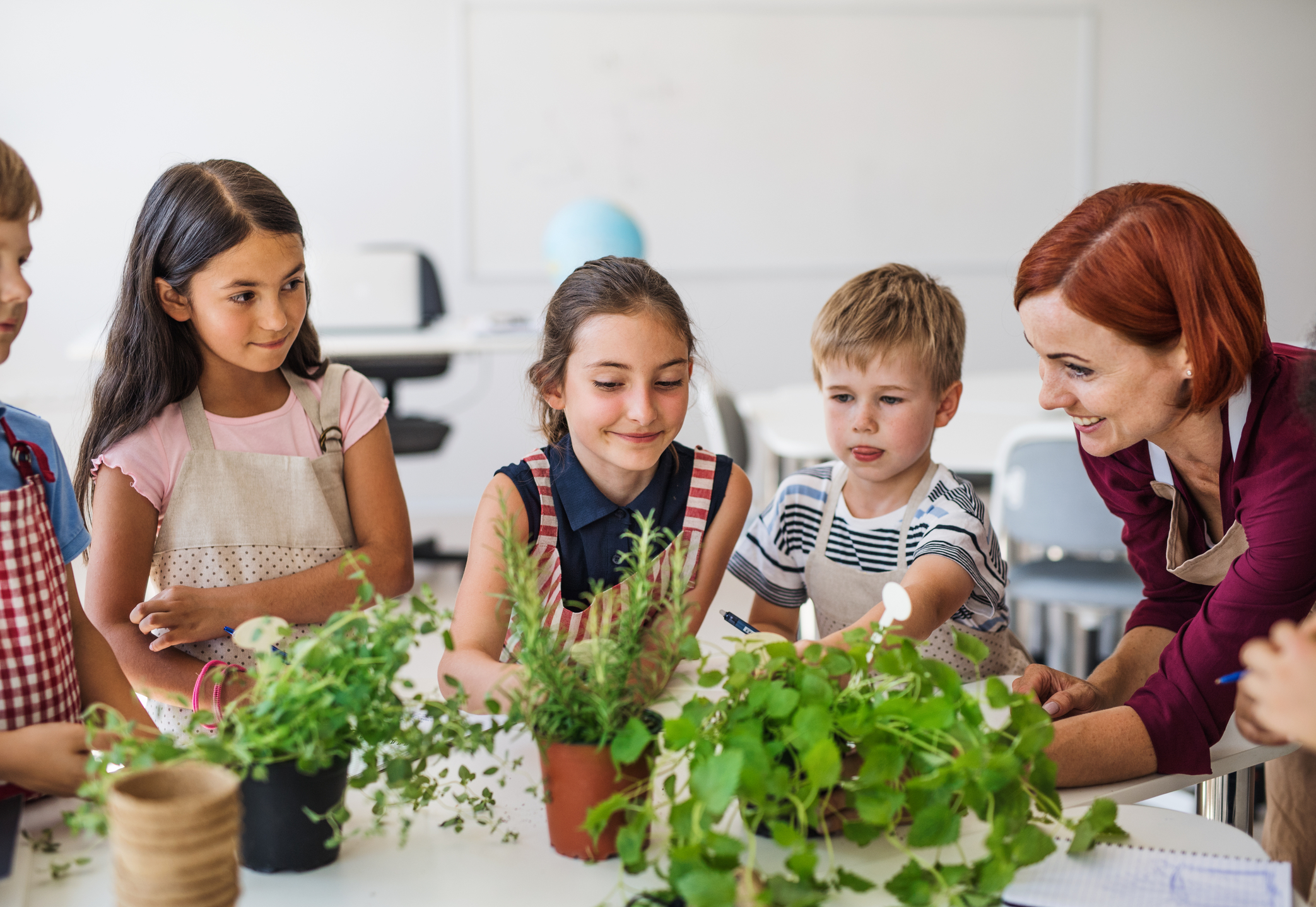
Sometimes guides involve too many steps, unnecessary information and even worse, insufficient needed information. I’ll try my best to give you brief but definite tips and ideas in teaching kids to grow herbs. To start things off, you need to always remember that kids need to have fun when growing herbs.
Why is Teaching Kids to Grow Herbs Important?
Giving your kids some form of activity that involves responsibility can greatly boost their character and sense of self. Growing herbs basically means tending to a life. There are other advantages and I’ll be going through the ones that I think are the most important.
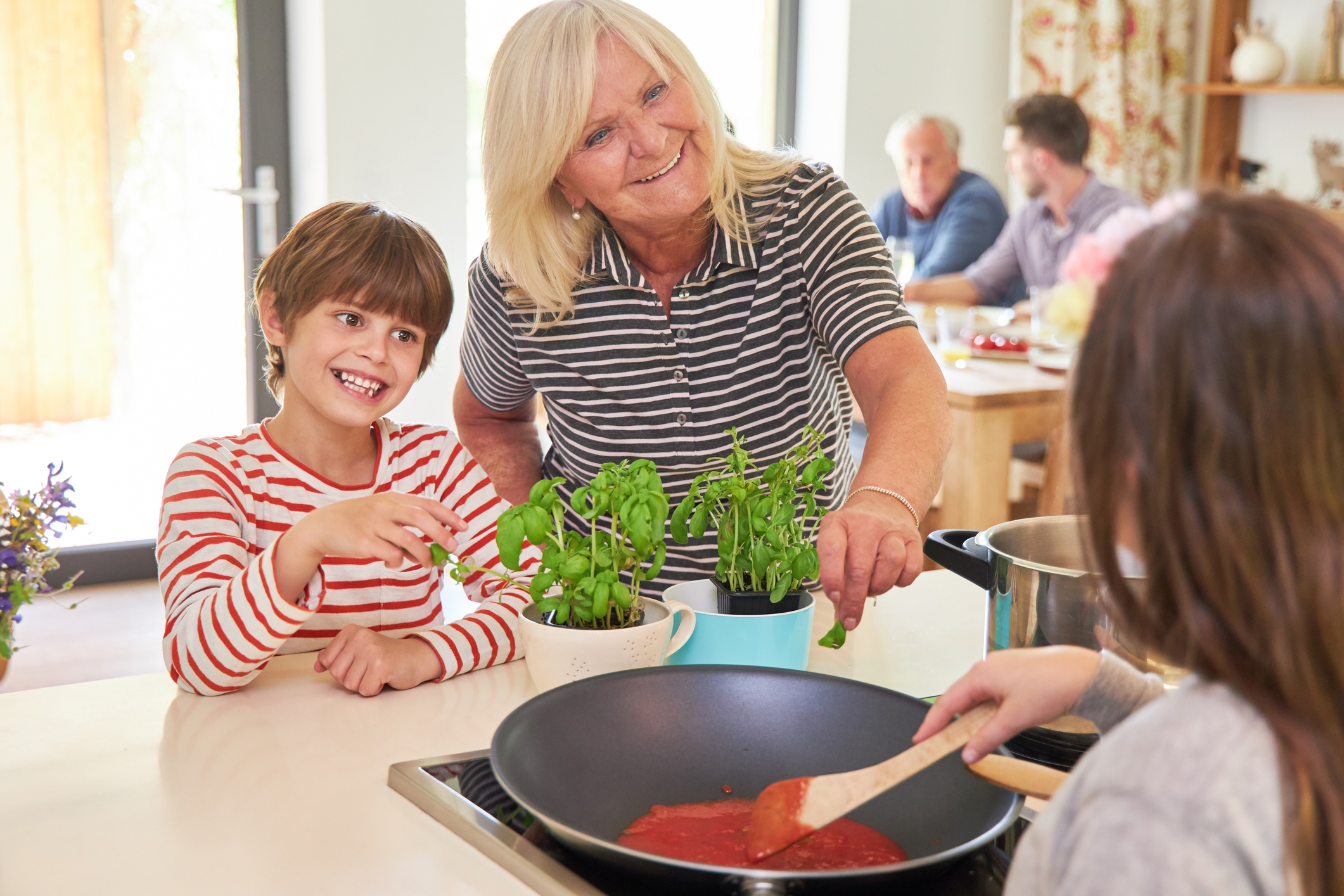
1. Helps Them Learn How to Take Care of Something
Gardening is an amazing way for your children to learn how to take care of something. Making it also a great stepping stone for them before adopting their first pet.
2. Teaches Them the Importance of Paying Attention
Even the easiest plants to grow need a bit of attention. Gardening will teach your kids how to pay attention, by paying attention to the needs of the plants like water, and the appropriate amount of sunlight.
3. Gives Them a Sense of Purpose
Learning to care for something and be responsible for it gives your children a sense of purpose and pride. To make them more eager to start gardening, provide an incentive for them. My suggestion would be a toy they badly want if they can maintain life for at least a month.
4. Helps Them Discover New Hobbies
Initially, your child might not show interest in gardening. However, if you take the time to be there for them, they might later on end up loving gardening. Since gardening herbs and cooking are intimately connected, teaching your child how to cook later on is another hobby they might enjoy.
5. Teach Them to Be Responsible
Caring for another living being has a great deal of responsibility attached to it. Your kids will learn how to wake up early when their plants need watering, learn how to check the moisture level of the soil, and others of the like.
6. Helps Them Gain Confidence
Seeing their plants sprouting will not only give them a significant boost in fulfillment and satisfaction but also their self-confidence. Reassurance that they did something worthwhile is one of the best ways to build confidence. Of course, you need to keep in mind that even an additional pat in the back will bring wonders to their character as a person.
Teaching Kids to Grow Herbs: Is It Possible?
As parents, we always want to expose our kids to different experiences and help them develop a love for nature. One activity that can be both fun and educational is teaching them how to grow herbs. However, you might wonder – is it really possible to teach kids how to grow herbs? The answer is a resounding yes!
First and foremost, growing herbs should be fun for kids, not feel like a chore. You can let your child choose which herbs they want to grow, or create a special garden bed just for them. For added fun, you can craft plant markers, whip up homemade plant food, or even make a scarecrow to keep pests at bay. Don’t forget – the more fun you make it, the more your child will want to be involved.
Another important tip is to use simple language when explaining the gardening process. Try to avoid using medical terms and instead stick to language that your child can relate to. Instead of saying “transplant,” use phrases like “moving the plant to a new home” to help them understand better. Making it relatable will help your child stay interested and invested in the process.
Additionally, hands-on teaching is the best way to help kids learn. Allow your child to assist with tasks like watering, weeding, and planting. As you work together, explain each step and answer any questions they may have. This way, they’ll learn by doing and will be more likely to remember what they’ve learned.
Growing herbs takes patience and time, which can be a tough thing to teach kids who can easily get bored. Set realistic expectations and explain that it takes time to see progress. Celebrate small milestones, such as the first signs of growth or the first use of herbs in a recipe. By showing patience and celebrating small wins, you’re helping your child develop an appreciation for the process while learning the value of perseverance.
Teaching kids to grow herbs can be both fun and educational. By making it enjoyable, using easy-to-understand language, being hands-on, and remaining patient, you’re providing your child with valuable lessons about the environment, sustainability, and the importance of taking care of living things.
How to Teach Kids to Grow Herbs:
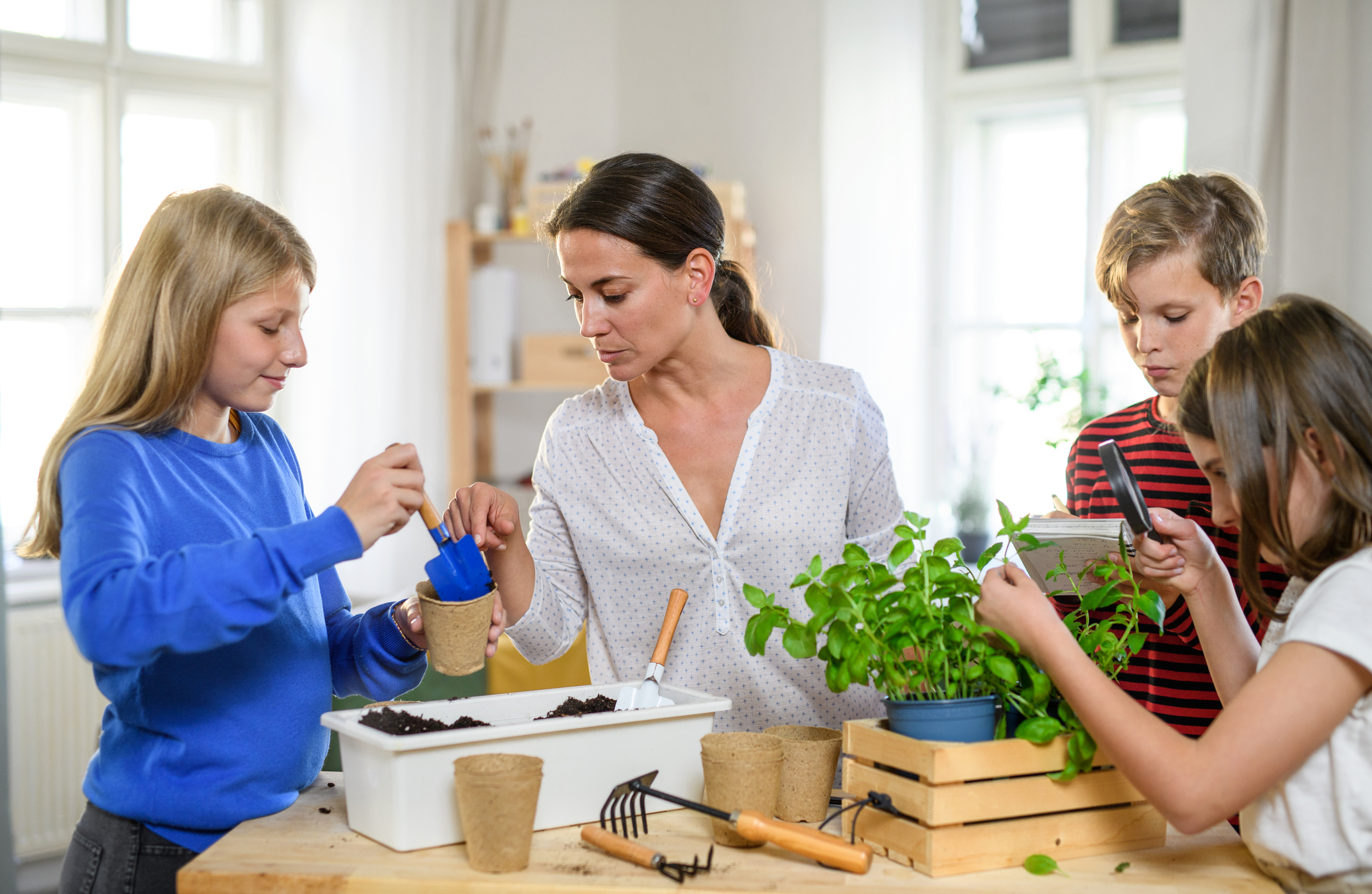
Teaching kids to grow herbs is a great step toward teaching them how to become better individuals. Herbs are easy to plant and maintain, making them a great way to help them learn important life lessons while still having fun.
1. Preach What You Teach
Before you can teach your children how to grow herbs, you must know how to grow herbs yourself. You cannot teach something which you don’t know. That is why before trying to teach your kids.
2. Teaching Kids to Grow Herbs By Tutorials
Personally, whenever I want to learn something new, I watch video tutorials to help me learn easier. Watching video tutorials with your children is a fun and interactive way to learn before doing the actual gardening itself.
3. Experience Is the Best Teacher
The best way to teach your children how to grow herbs is by doing actual gardening. In order not to waste resources, start with only a couple of seeds and the basic necessary materials.
4. Teaching Kids to Grow Herbs by Being Aware of Them
Knowing the types of herbs available is necessary to ensure that you are planting the right type of herb Perennial herbs, are a type of herb that lasts for up to three years and you can enjoy them all through summer and dies come winter time. However, after winter, perennial herbs grow back again. Another type of herb is the annual herb which, unlike perennial herbs, dies annually which then requires replanting.
Teaching Kids to Grow Herbs: The Methods
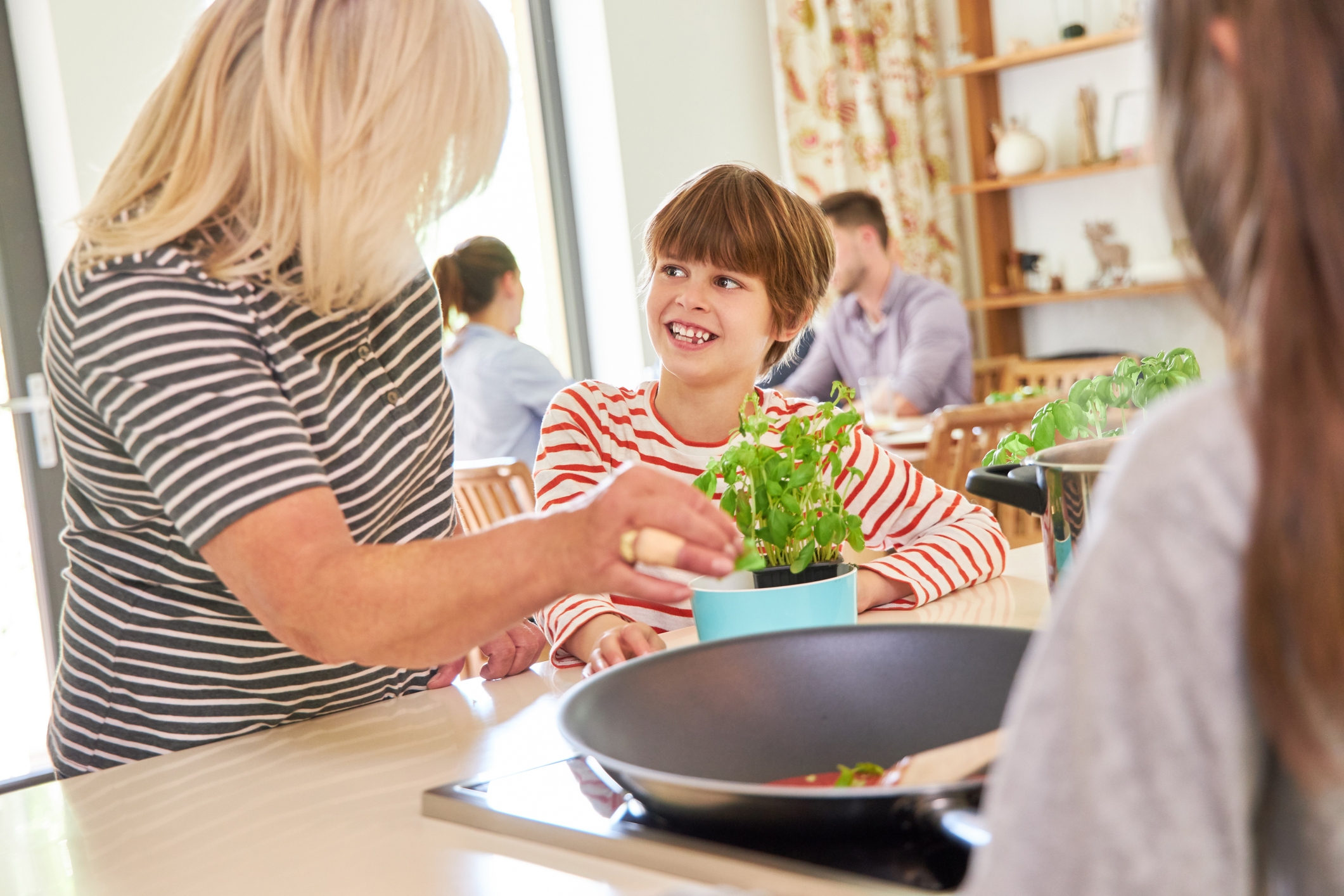
There are several methods to grow herbs. I’ll divide them into the two methods of gardening in general, without delving into other complicated methods. These methods are the easiest to do, follow and maintain.
Outdoor Gardening
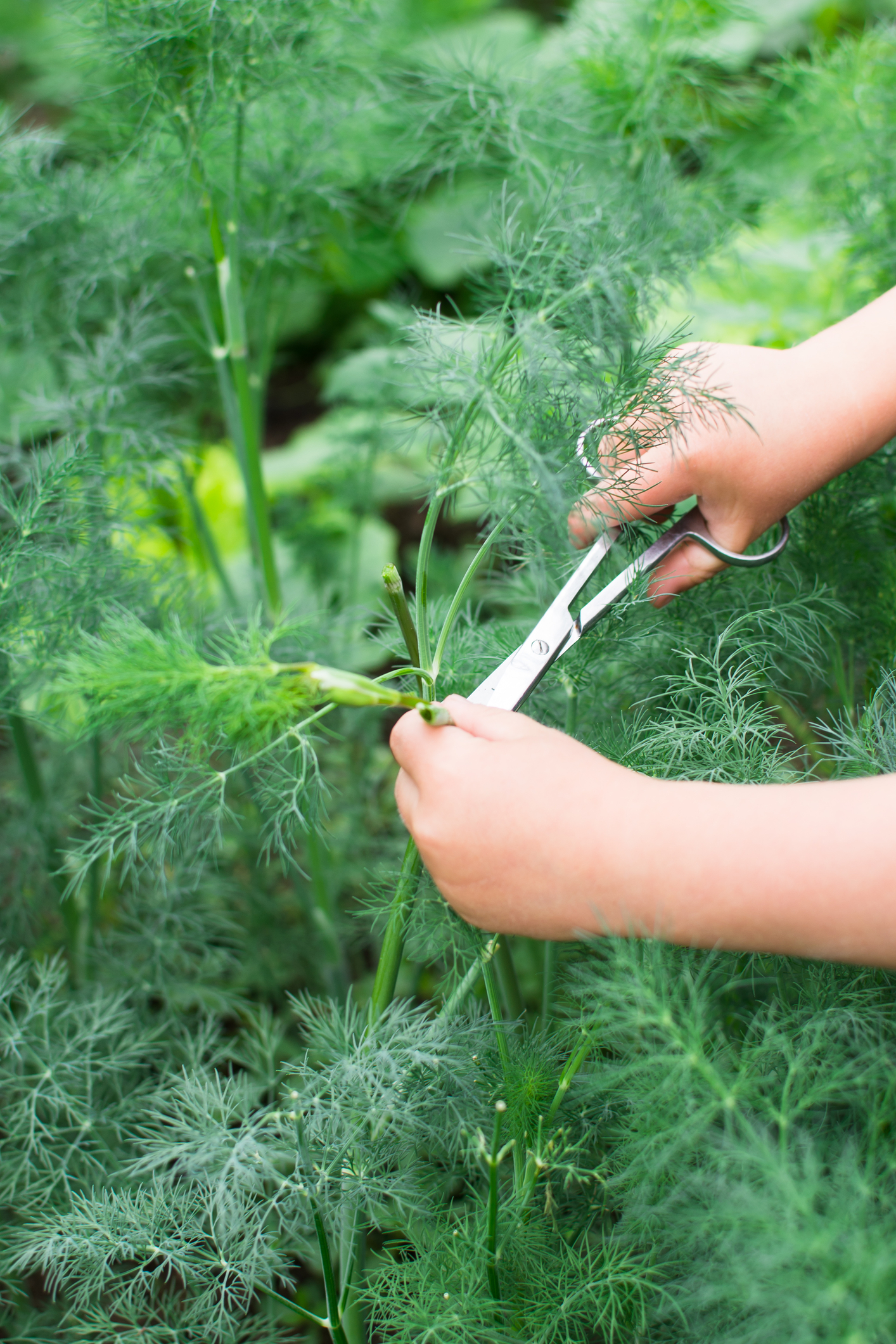
There are several methods to grow herbs. I’ll divide them into the two methods of gardening in general, without delving into other complicated methods. These methods are the easiest to do, follow and maintain.
Indoor Gardening

The second method for growing your herbs is indoor gardening. Herbs can generally grow indoors provided it is given the right love and care it deserves. Mediterranean herbs require heat and relatively dry soil. If you are trying to grow this herb indoors, ensure that it is placed near sunlight, like on a windowsill. One book I could recommend for really in-depth knowledge regarding herbs and everything related to it is this book entitled “ The Complete Book of Herbs: A Practical Guide to Growing and Using Herbs”
Best Plants for Teaching Kids to Grow Herbs
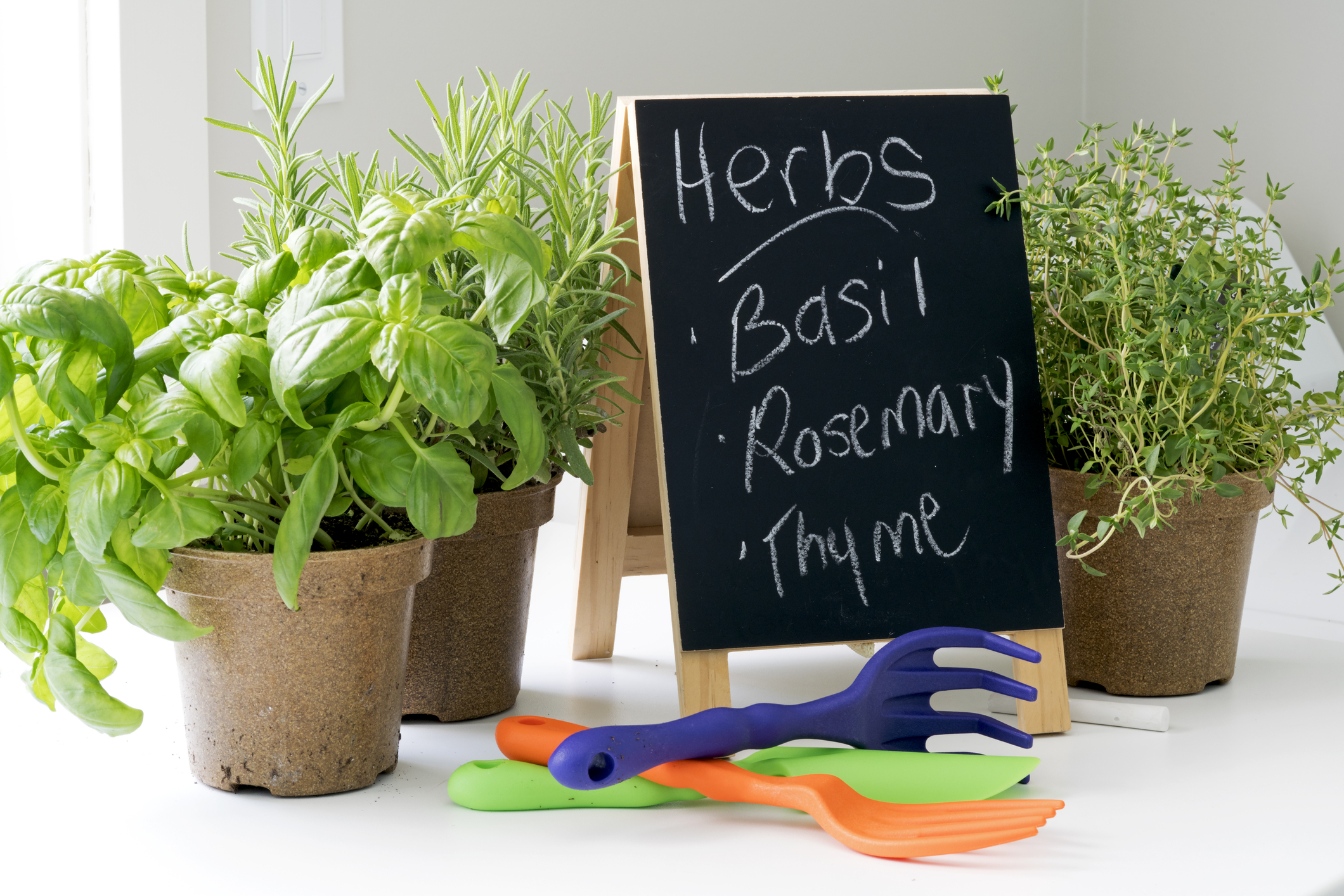
Here are two herbs that I think would be the best ones to start with when teaching kids to grow herbs. These herbs are easy to grow, maintain and harvest. What’s more, they can even be planted indoors.
Basil
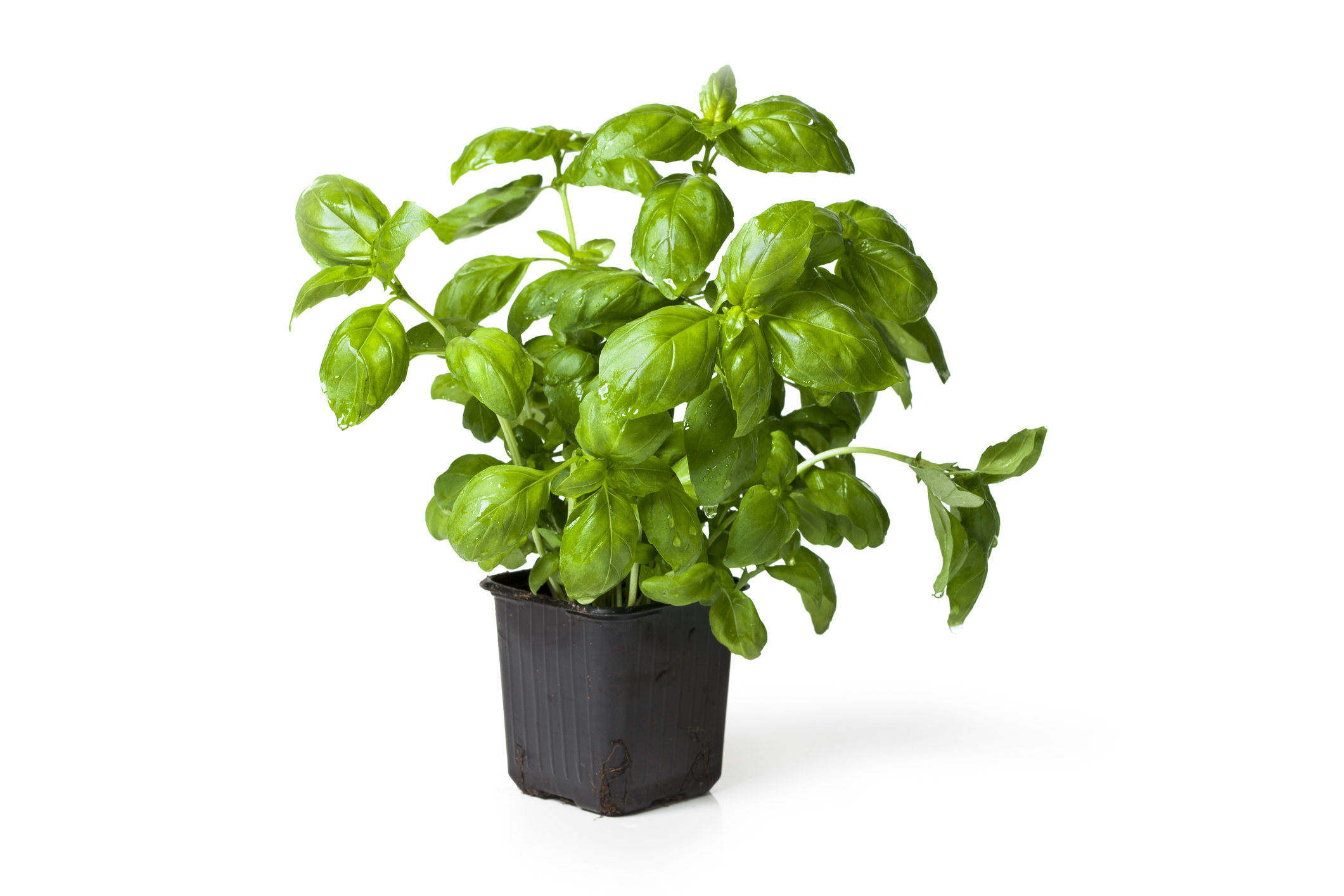
Prefers: Moist Soil Sunlight: Prefers 6-8 hours of direct sunlight If planted outdoors: Plant the seeds at most ¼ inch deep in the soil. Wait for seedlings to sprout and once there are at least 2 to 3 leaves, replant each seedling so that there is only one seedling per 12 inches. If planted indoors: Ensure that the soil remains moist. Place it on a windowsill or a place where there is direct sunlight. Caring for Basil: Ensure that the soil is moist, and once the plant has six leaves prune accordingly to promote growth. You can try this for teaching kids to grow herbs that can be their food.
Thyme
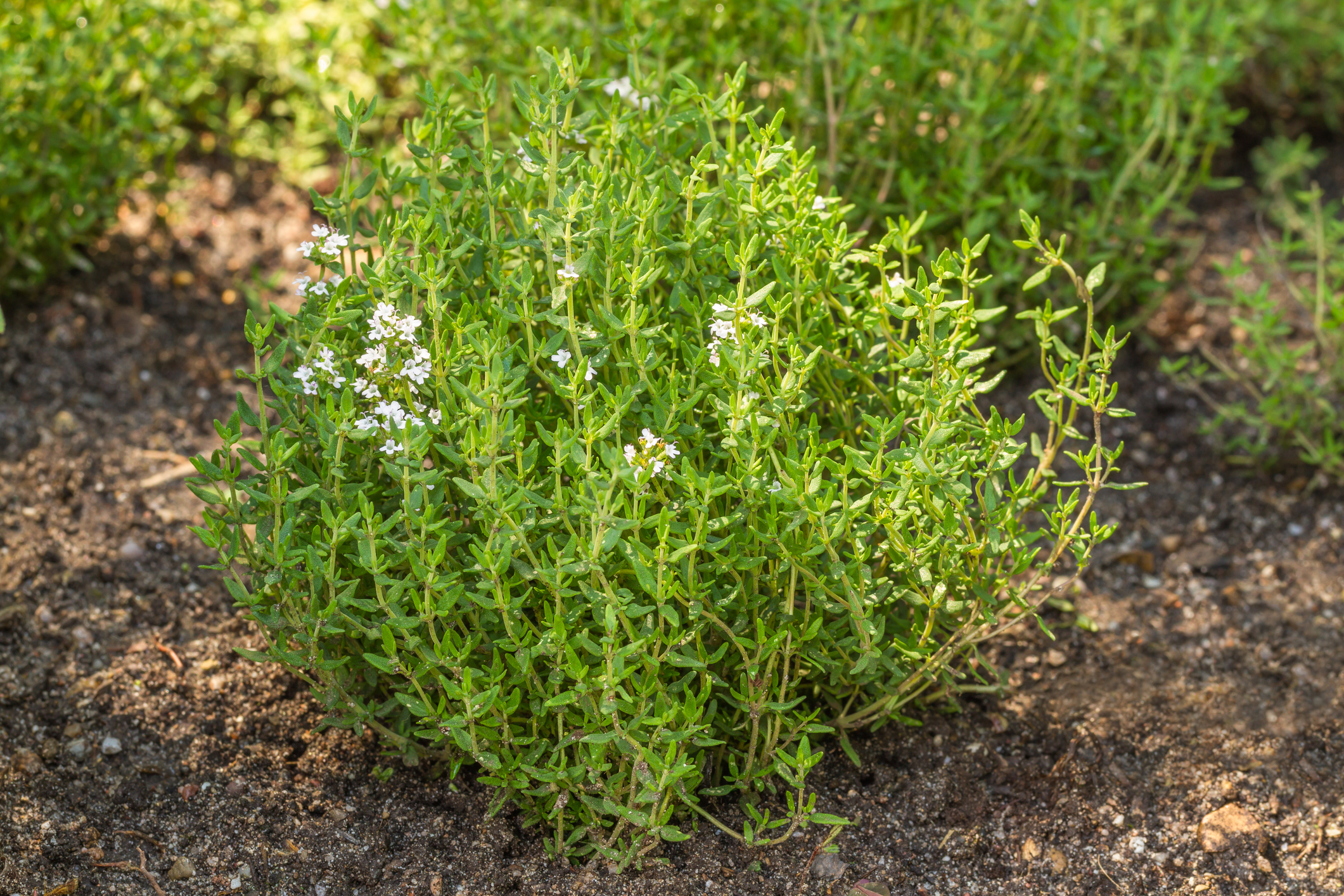
Prefers: Moist and Fertile soil (use fertilizer or compost) Sunlight: Thymes are herbs that grow best in full sun. If planted outdoors: You need to place them in pots since they can be a bit delicate. If this is not possible, then you just need to make sure that the place you plant them in has excellent drainage. The reason for this is because their roots rot easily. Caring for Thyme: In general, you just have to be consistent in watering them. For best results, you can regularly add in compost or fertilizer to the soil. You might have problems regarding spider mites during dry weather but this can easily be solved with natural insecticides like vinegar.
Oregano
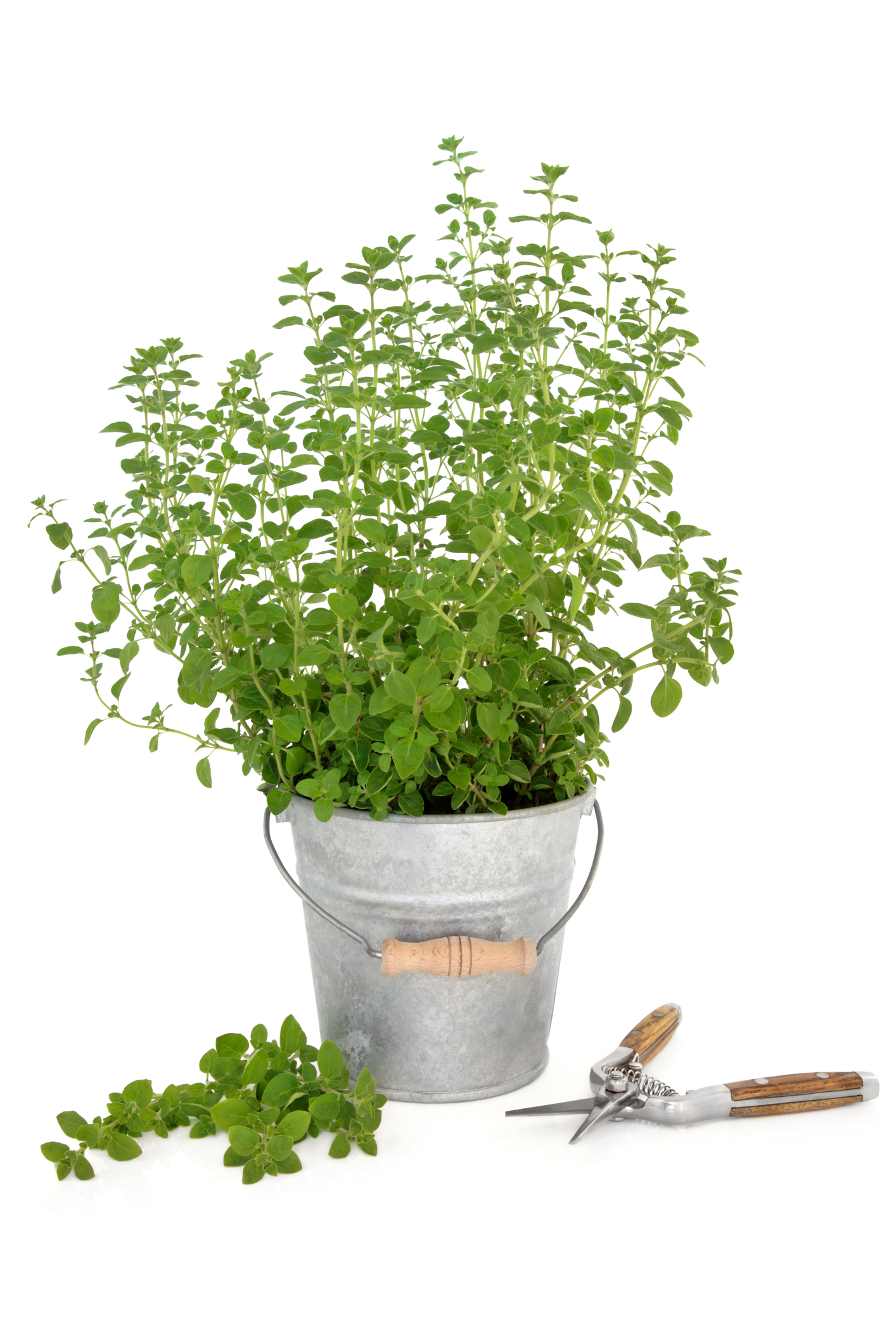
Prefers: Well-drained soil Sunlight: Full sunlight If planted outdoors: You need to understand that oregano herbs are seasonal. Like a lot of plants, they easily wilt when there are drastic temperature changes. It would be best to plant and grow them indoors. Though if you plant them outdoors, you just need to make sure that they are placed in a sunny but properly sheltered spot in the garden. You also need to make sure that the soil it’s planted on is well-drained. Caring for Oregano: Oreganos love the sun but of course, too much will also cause it to wilt. In general, oregano can easily sprout from their seeds but you can also use cuttings to grow new ones. Lastly, they thrive in healthy and fertile soil so you need to mix a bit of compost every now and then for them to really thrive. Try this for teaching kids to grow herbs because it is good as an antibacterial plant and for cough treatment.
Try Teaching Kids to Grow Herbs

I hope reading this article helped you learn the basics of teaching kids to grow herbs. Always keep in mind that you do not need a large garden to be able to plant or grow your herbs. Because you can easily have your family kitchen garden indoors. All you need is the right patience and love so that your children will learn and your plants and herbs will flourish.
When teaching your children how to plant, remember to be gentle. After all, they could one day become skilled gardeners. Furthermore, they need more time to grasp everything you say. But with your help and support, they might come to share your enthusiasm for gardening.
Try Teaching Kids to Grow Herbs

I hope reading this article helped you learn the basics of teaching kids to grow herbs. Always keep in mind that you do not need a large garden to be able to plant or grow your herbs. Because you can easily have your family kitchen garden indoors. All you need is the right patience and love so that your children will learn and your plants and herbs will flourish.
When teaching your children how to plant, remember to be gentle. After all, they could one day become skilled gardeners. Furthermore, they need more time to grasp everything you say. But with your help and support, they might come to share your enthusiasm for gardening.
Frequently Asked Questions –
Teaching Kids to Grow Herbs
What are some easy herbs to grow with kids?
There are a lot of herbs that are easy to grow and fun to use with kids! Basil, chives, and mint are all great options. They grow quickly and don’t require a lot of maintenance, which makes them perfect for little ones. You can also use them in all sorts of recipes, like homemade pizzas or smoothies. So take your pick and get planting!
How do I get my kids excited about growing herbs?
One of the best ways to get your kids excited about growing herbs is to involve them in the process from start to finish. Let them pick out which herbs they want to grow and make sure they have a say in where the plants are placed. Please encourage them to care for the plants by watering them and checking in on them regularly. And remember to celebrate when the herbs are ready to be harvested! Maybe plan a special meal where you use the herbs they grew to show them just how important their work was.
Can growing herbs with my kids have any educational benefits?
Absolutely! Growing herbs with your kids can have a lot of educational benefits. It’s a hands-on way to teach them about science and plant life cycles. They can learn about the importance of soil, water, and sunlight and how to care for plants. And since herbs are often used in cooking, growing them can be a great way to introduce your kids to new flavors and recipes. Plus, it’s a great way to get them excited about eating their veggies!

